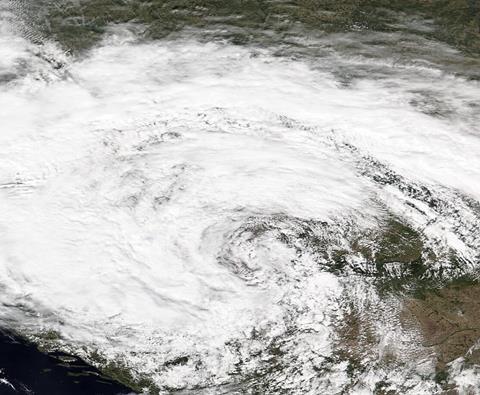Following the recent floods across Europe caused by Storm Boris, the European Commission has promised financial aid to those farmers affected
Following the devastating impact of Storm Boris across Europe, the European Commission has proposed to allocate €119.7m from the agricultural reserve to directly support farmers impacted in Bulgaria, Germany, Estonia, Italy and Romania.
The Commission proposed €10.9m for Bulgaria, €46.5m for Germany, €3.3m for Estonia, €37.4m for Italy and €21.6m for Romania to compensate farmers who have lost part of their production.
“The amounts presented are a sign of EU solidarity with affected farmers, which can be complemented by up to 200 per cent with national funds,” the Commission stated.

Poland’s Minister of agriculture, Czesław Siekierski, announced that the government had applied for EU assistance for farmers impacted by flooding, with the country assessing the extent of the destruction before submitting a damage report to the Commission.
Polish producers of vegetables including tomatoes, peppers and potatoes, which had not yet been harvested, have suffered the biggest losses, according to Foodcom.
“These are extraordinary times and extraordinary times need extraordinary measures,” said the Commission’s president, Ursula von der Leyen, alongside the leaders of Poland, Slovakia, Czechia and Austria, which were all hit hard by the floods. “At first sight, €10bn could be mobilised from the cohesion funds for the countries that are affected. This is now an emergency reaction.”
In Czechia, mayor of Opava Tomas Navratil told Czech public radio that the situation was worse than during the last devastating floods to hit the country back in 1997, known as the “flood of the century”.
Moldova’s deputy prime minister, agriculture and food industry minister Vladimir Bolea said this year’s weather extremes had endangered not just harvests, but the viability of the sector.
“Our farmers, many of whom are small producers, are at the end of their powers,” he said. “Because of the extreme weather conditions, the losses in agriculture are huge and domestic resources are no longer enough for ensuring the continuity of their work.”
The Commission’s proposal is set to be discussed with all Member States prior to a decision on its approval at the Committee for the Common Organisation of Agricultural Markets on 7 October.



